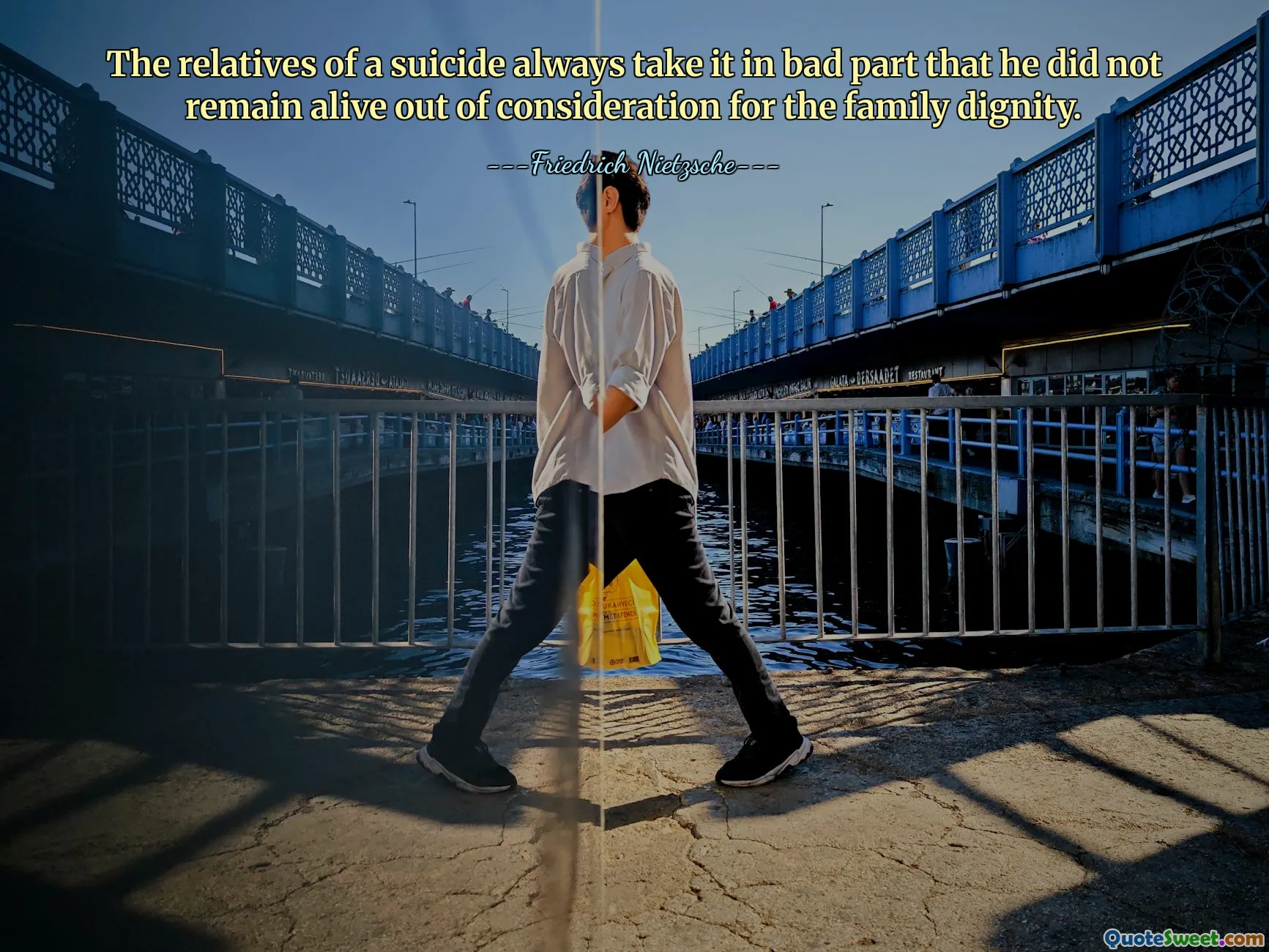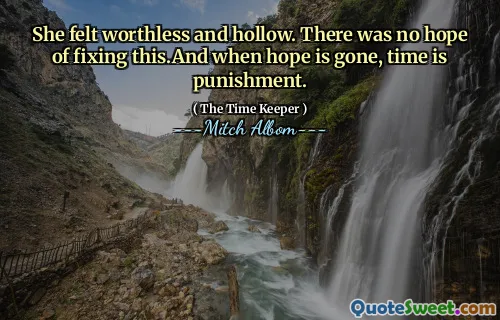
The relatives of a suicide always take it in bad part that he did not remain alive out of consideration for the family dignity.
This quote delves into the complex and often painful reactions of those left behind after a suicide. It highlights a societal tendency to interpret such tragedies through the lens of family reputation and dignity. When someone takes their own life, it is not merely a personal act of despair but also one that resonates deeply within their community and family circle. The relatives may experience a spectrum of emotions—grief, guilt, shame, or even anger—but a recurring theme is the perception that the deceased’s decision was a failure to uphold their family’s social standing. This perspective can compound the trauma of loss, making it difficult for loved ones to process grief in a healthy manner. It underscores how societal values and cultural expectations shape our understanding of mental health and tragedy. Recognizing that societal shame can influence reactions to suicide is crucial for fostering more compassionate and understanding responses. Empathy and awareness can help break down stigmas, emphasizing that mental health struggles are genuine and require support rather than judgment. Furthermore, such reactions might prevent open dialogues about mental illness, making it harder for those suffering to seek help. This quote invites us to reflect on the importance of compassion over societal expectation, and the need to support individuals and their families through understanding rather than shame. It reminds us that behind every tragic choice lies a human being in pain, deserving of empathy and care—not judgment grounded in notions of reputation or dignity.








